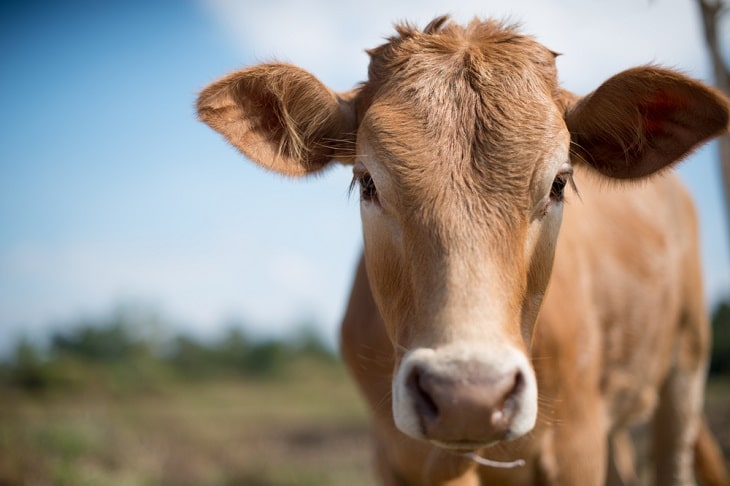Jasmine Birtles
Your money-making expert. Financial journalist, TV and radio personality.

Have you ever thought you could go meat-free if only for a while?
The number of vegans and vegetarians is on the increase as more people are becoming aware of the massive benefits this lifestyle change can bring.
Unsure if you’ve got the staying power to go meat-free? See if you can join celebrities like Benedict Cumberbatch, Ariana Grande and Zac Efron by committing to just one month of vegetarianism (or veganism if you’re hard-core).
Sounds good? Read more.
Of course, finding alternatives to meat and dairy isn’t the only way to live a healthy lifestyle. But still, the many research studies carried out have been pretty conclusive. Going veggie is good for your health. There’s more contention around veganism but, to speak generally, pay attention to the nutrients you’re receiving and all should be well.
You can easily swap meat in almost any recipe for alternatives such as:
All of which are tasty and low in fat and salt. If mushrooms and peanuts are the only option you recognise from this list, don’t worry – you’re in for some pleasant surprises.
Most people associate month-long attempts to improve themselves with January. These have resulted in experiments studying the effects of just a month of good behaviour.
For example, the official Veganuary (vegan January) website reported that in 2017, 87% of participants had lost weight throughout the month. That’s despite still consuming a similar number of calories to those eating meat and dairy.
And weight loss is only one of many benefits to a vegan diet. Do you have a snuffle that never seems to go away? Are you plagued with acne or rashes? A surprising number of people have intolerances and allergies that they had no idea they suffered from.
Four of the most common food allergens are:
Looking for alternatives can therefore help you pinpoint any allergies you may suffer from.
Red meat, alongside other contributors like smoking, is one of the main causes of high blood pressure and high cholesterol. Those lead to a greater risk of heart attacks and strokes. Exchanging it for something else is, some say, one of the best things you can do for your health.
Do you feel like crying at the thought of living without bacon butties for a month? Pull out the tissues. This may sound harsh, but bacon, ham, sausages and other processed red meats have been highlighted as significantly increasing one’s risk of cancer and heart disease. Yet another reason to go meat-free.
You don’t have to turn to full veganism to reap rewards. Vegetarians who continue to eat eggs and butter have demonstrated remarkable health improvements. And really, who needs bacon when you have chocolate? There are plenty of dairy-free varieties available.
As we mentioned earlier, veganism can be slightly more difficult to manage as some vitamins and minerals are only available in animal produce, such as Vitamin B12. You can easily solve this by either eating fortified cereals for breakfast or taking a supplement.
Other health benefits of veganism could include:
Keen to go meat-free? Make sure you gather enough information on how best to manage a healthy vegan diet. Take a look at the dedicated NHS page.
Of course, it depends on what you want to eat. Do you plan on:
If so, then don’t expect your weekly expenditure to drop much.
Meat is typically the most expensive food item on your shopping list. If you go meat-free, make sure you don’t swap it for something equally expensive.
Thankfully, vegetables are typically much more cost-effective than even the cheapest cuts of meat. Rice and beans aren’t only stereotypical vegetarian food, but also wonderfully low-priced.
Another great advantage is that you can grow your own veg, which – unless you live on a farm – isn’t very practical with cows or pigs. Seeds typically cost mere pittance, and that’s the main expenditure.
For more tips on how to cut your weekly food bill, check out our articles on buying in bulk and our top 8 sneaky supermarket tricks.

Tread lightly on the earth and minimise your carbon footprint – go meat-free as either a vegan or vegetarian.
Everyone knows about how much cows fart and the methane this adds to the atmosphere. But that’s only the tip of the iceberg of how much the meat and dairy industry contributes to environmental damage.
To start with, livestock consumes the majority of the world’s crops as feed, despite one billion people going hungry. The average omnivorous American needs twenty times as much land as the average vegan to provide their food. Not to mention all the water required throughout these creatures’ lives.
Overstocking is also a big problem. Large areas of the land the animals live on are suffering from soil erosion and desertification.
For more information on the ways the meat industry harms the planet, we suggest you check out this article here.
But on the bright side, Dr Marco Springmann of the University of Oxford has identified a vegan diet as the single most effective way for individuals to combat global warming and contribute positively to the global environment.
In an interview, Springmann declared that if the world went vegan in 2050, in a single year it could:
Most incredibly, he believes he has actually underestimated how much this would change everyone’s lives for the better.
Feeling inspired? Check out the official Vegan Society or Vegetarian Society websites for plenty of advice, information and recipes.

I like this post, mainly because it fits in with my current thinking, I am gradually changing my eating patterns, but I cannot afford to waste what I have already in store
Meat alternatives such as Quorn are more expensive than the real thing.
Between artificial and what we actually get as meat you really have to wonder if its safe to eat anything labeled meat today. It definitely isn’t healthy..